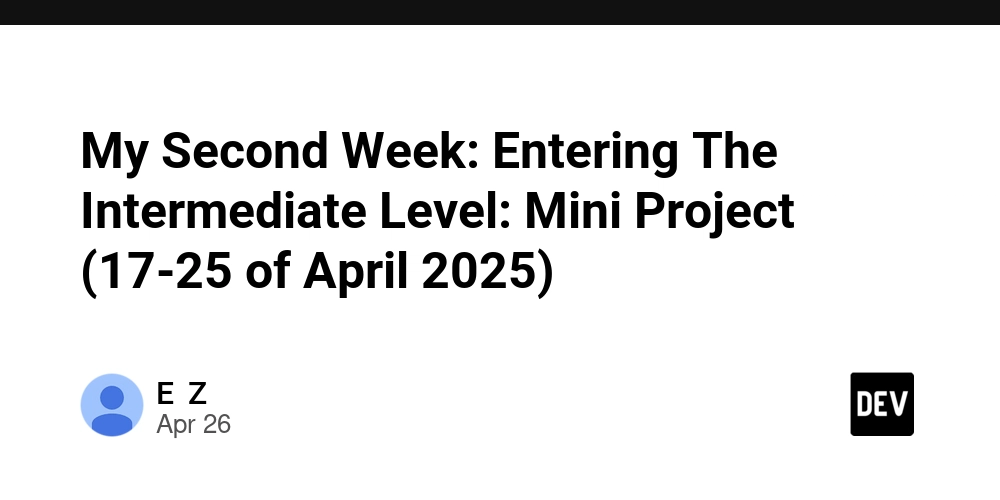9 Pieces of Advice for a Retired Doctor
Let's take a look at the case of a 74-year-old retired physician who wants to give money away but is worried about running out of assets. The post 9 Pieces of Advice for a Retired Doctor appeared first on The White Coat Investor - Investing & Personal Finance for Doctors.

 By Dr. Jim Dahle, WCI Founder
By Dr. Jim Dahle, WCI FounderWe occasionally get requests for more posts about doctors who are on the cusp of retirement or already retired, so I thought I would highlight the situation of a doctor who posted on the Bogleheads Forum looking for advice. The relevant material in the post was as follows:
“I am a 74-year-old retired, divorced physician with two sons and a partner who lives separately on a similar amount of assets. I currently have $2 million in investments with an advisor charging 0.7%, and I'm afraid to do this on my own. I have two homes, each worth about $1.8 million. The summer home has many expenses but no mortgage and is adored by my children. The winter house has a $360,000 mortgage at 3.1% and I want to keep both houses for now. I choose to give my kids big extras now, so they don't have to wait until I die. One son is in the arts, and I've said I would pay for childcare if he has children. My two sons are getting married, and I would like to give one $100,000 for a home purchase in the next 2-3 years.
I had expected to follow the 4% rule but am finding I need 5.5% to cover my expenses. I was in 60% equities before COVID. I sold 90% of my equities in mid-2022 because I could not afford to hold and make it in retirement. Now I'm back in stocks with 20% of my portfolio (all big American companies including LLY, NVDA, Google, Meta, V, MSFt, Cost, ADBE, AMZN, AAPL) with the rest in bonds, including Treasuries, munis, and corporates. I am thinking about switching to Bogle Vanguard index funds—e.g. [a] three- or four-fund plan. But since I am actually retired, will this give me the 5.5% return?
I know I will save some on management fees, but what would Bogleheads recommend as I find I need to go into my capital? Are there other recommendations for people actually in retirement, not just saving for retirement? I would need to get a Vanguard personal advisor, but will they send me cash each month? Are they reachable if I need to make a change? Sometimes I feel the Bogle plan is one-size-fits-all, and with this state of the world, I feel I need help financially adjusting to pandemics, wars, and now a good economy which could go bad depending on the state of the world! I don't want to run out of money!”
I think there are nine things to learn from this example—some for this doctor and others for those who are not yet at this stage.
#1 Doctors Can and Should Retire with Great Wealth
It does not appear that this doctor is particularly knowledgeable about personal finance or investing, and it doesn't seem she's been doing a particularly good job managing her assets so far. Yet despite doing that AND probably cutting her assets in half in a divorce, this doc still has a net worth of about $5 million. Imagine how much more that could have been when combined with a dose of financial literacy administered early in her career.
#2 It's Pretty Easy to Be ‘House Poor'
House poor is when you have a lot of wealth but it is all tied up in your house. In the case of this doctor, there is $3.6 million tied up in her two houses, but the remainder of the assets total up to just $1.64 million ($2 million in investments minus a $360,000 mortgage). Two million dollars is a big portfolio but not when it is being asked to support a lifestyle that includes twice that much in housing. Selling one of those two houses changes the assets-to-housing ratio from $1.64 million/$3.6 million to $3.4 million/$1.8 million. Dramatically different. Robert Kiyosaki might not have gotten everything right, but he sure was right about the house you live in being a consumption item, not an investment.
More information here:
How to Buy a House the Right Way
#3 You Can Do Anything You Want But Not Everything
This doc has lots of financial goals. She wants to pull 5.5% out of her portfolio. She wants to give her son $100,000 and cover childcare. She wants to maintain both houses. She doesn't want to marry her current partner and combine assets and housing. She wants someone else to manage her investments. She doesn't want to run out of money. She could do any one of those things. She could do most of them. But she probably can't quite do all of them. She's going to have to decide what her priorities are.
#4 Get Rid of Your Debt Before You Retire
Making mortgage payments in your 70s is a drag. It's a drag on your cash flow. I don't know what the monthly payment on that $360,000 mortgage at 3.1% is, but let's say it was originally a $700,000 30-year mortgage. The principal and interest payments on that would be $36,177 a year. While the return on paying off the mortgage would be 3.1% (or perhaps even less after tax), the cash flow that would be freed up would be more like 10% ($36,177/$360,000 = 10%). That beats the socks off of 5.5%, much less 4%.
#5 Lots of ‘Financial Advisors' Suck
This “financial advisor” is charging $14,000 a year, and they allowed this investor to sell low and are now encouraging her to buy high. That's terrible stock market behavior. What's the point of an advisor who can't keep their client from doing that? And why hire an advisor at all if you're going to control the investments yourself? What's up with the individual stock picking and performance chasing, too? It's one thing to pay too much for good advice. It's entirely different to pay too much for bad advice—not that there is any price low enough for advice and service like this doc is getting. If this doc had been using index funds for the last 20 years and had, with the assistance of a good advisor, managed to curb bad investor behavior, her nest egg could easily be two or even three times as large.
More information here:
How Do You Know If You Are Getting Good Advice at a Fair Price?
#6 Too Many Older People Don't Understand the 4% Rule
The 4% guideline basically says you can withdraw 4% of your portfolio a year, adjusted upward for inflation each year, and expect it to last at least 30 years with a high degree of confidence. How do you apply that in the life of a 93-year-old client? You don't. It doesn't apply. That 93-year-old is not going to live 30 more years. They probably won't live five more years. Let's go back to that Trinity Chart and see what it says about shorter time horizons.
Note that the study didn't even bother looking at five- and 10-year periods. The shortest period on the chart is 15 years. There's nothing useful here for 93-year-olds. But I'm willing to go way out on a limb here and say a 10% withdrawal rate is completely reasonable for a 93-year-old. That's probably going to last 8-15 more years, and that's going to be plenty.
What about a 74-year-old? What's the life expectancy of a 74-year-old female? It's 13 years. It's not bonkers to use the 15-year line in the Trinity study. You can be conservative and use the 20-year line or be ultra-conservative and use the 25-year line. If she has a 50/50 portfolio, she can withdraw 7% a year and expect it to last 15 years 84% of the time. Bump it down to 6%, and it's surely going to make it. So, 5.5% isn't going to be a problem. Even if she lives 25 years, 6% would work 70% of the time (and 5% would work 87% of the time), and it isn't like she can't adjust as she goes (i.e., sell one or even both of the houses).
#7 It's OK to Spend Your Capital
I'm not sure where the old maxim “Never spend your capital” came from, but I suspect it was from a bunch of immortal vampires or something. The rest of us are going to die at some point, and may we all be lucky enough to be heirs of someone who thought they weren't supposed to spend their capital. If you have a $2 million portfolio and never spend your capital, you're going to leave at least $2 million behind that you could have spent yourself or given away to charity with warm hands. Probably more like $4 million. Plan to spend some of your capital in a reasonable way during retirement. It's OK; you won't live forever.
#8 One-Size-Fits-All Is Actually Probably a Fine Way to Manage Money
This investor feels like she needs an individualized portfolio—a portfolio that can be adjusted for pandemics and wars and good economies—and an advisor that can be reachable in the event she needs to make a change. None of that is likely true. The honest truth about asset management is that we could all probably be dumped into the Vanguard LifeStrategy Moderate Growth Fund (VSMGX) (or maybe the Conservative Growth Fund if we're 74) and be just fine. Seriously. Something reasonable, anything reasonable, is going to work when combined with adequate funding and a reasonable withdrawal rate. Thinking we need something special probably just costs us more in advisory fees and hassle.
More information here:
Retirement Spending Is Ridiculously Tax Advantaged
A Framework for Thinking About Retirement Income
#9 SPIAs Are Great for Those Worried About Running Out of Money
A big fear for this doc is running out of money. She won't ever actually run out of money because of Social Security. But she doesn't have to set the floor on her spending that low. She can raise it with a Single Premium Immediate Annuity (SPIA). A SPIA purchased by a 74-year-old female pays 9.2%. Let's say she's getting $40,000 a year in Social Security. She can take $500,000 of that nest egg, buy a SPIA with it, and raise that floor from $40,000 to $86,000. No, that SPIA isn't adjusted for inflation like Social Security (that's why delaying Social Security to 70 is the best SPIA you can buy), but she's also 74. There aren't that many more years ahead of her for inflation to rear its ugly head. Using some of the nest egg to pay off the mortgage and some of the nest egg to buy a SPIA dramatically improves her cash flow, especially when she realizes she can easily take 6%-7% of the rest each year and spend it without much fear.
The decumulation phase can certainly be more complicated than the accumulation phase, but this stuff isn't rocket science, much less nephrology. You can figure it out, and even if you need a little help, you can find someone who can provide that help at a fair price.
What do you think? What takeaways do you have from this real-life example? What advice would you give this doc?
The post 9 Pieces of Advice for a Retired Doctor appeared first on The White Coat Investor - Investing & Personal Finance for Doctors.















































































